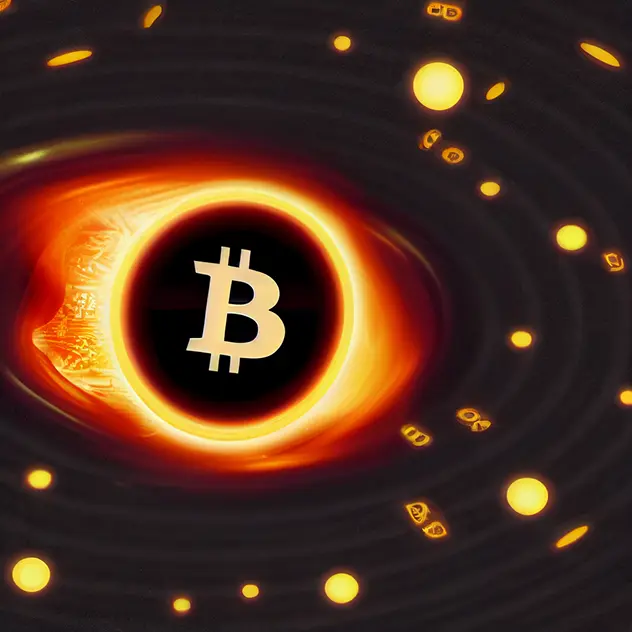The Energy-Intensive Mining Process
Bitcoin’s security and decentralized nature are upheld through a process called mining, where miners compete to solve mathematical puzzles. This process requires substantial computational power, which translates into energy consumption. The computational race to find the solution first and add a new block to the blockchain incentivizes miners with rewards in the form of newly minted bitcoins.
The Black Hole Analogy
The energy-intensive nature of Bitcoin mining has led to concerns about its ecological impact. However, it is essential to consider the broader picture. Bitcoin’s energy consumption has a unique feature: it acts as a “black hole” for energy. This means that the energy spent on mining does not disappear or go to waste; rather, it is converted into securing and maintaining the decentralized network, making it highly resistant to attacks and tampering.
Renewable Energy and Wasted Energy
Critics argue that Bitcoin’s energy consumption is detrimental to the environment. However, this perspective overlooks two essential aspects. First, Bitcoin mining’s growing popularity has spurred the development and adoption of renewable energy sources. Miners are increasingly seeking energy from renewable sources like hydro, solar, and wind, promoting a more sustainable energy landscape.
Secondly, Bitcoin mining has the potential to utilize wasted energy, which would otherwise be discarded or unused. For instance, some mining operations are strategically located near sources of excess energy from industrial processes, capturing energy that would otherwise go to waste. By tapping into this otherwise unused energy, Bitcoin mining can be viewed as a catalyst for improving energy efficiency.
Thermodynamic Limitations and Network Security
The limitations of thermodynamics come into play as a crucial factor in ensuring the security of the Bitcoin network. The energy expended during the mining process is directly related to the computational work required to solve the cryptographic puzzles. Any attempt to compromise the network’s integrity by altering past transactions or forging new blocks would require an astronomical amount of energy, far exceeding what the entire Bitcoin network is capable of producing.
The Cost of Attack
To launch a successful attack on the Bitcoin network, a malicious actor would need to amass computational power greater than the combined computational power of all honest participants in the network. This requirement creates a prohibitively expensive cost for potential attackers. As a result, the thermodynamic limitations effectively deter malicious actors from attempting to undermine the network’s integrity.
A Trustless and Secure Network
By leveraging thermodynamic limitations and the computational energy expended during mining, Bitcoin achieves a trustless and secure consensus mechanism. Participants can be confident that the blockchain’s history is valid and reliable, as altering the past would demand an implausible amount of energy. This trustless nature, free from central control, is one of the key pillars that sets Bitcoin apart from traditional financial systems.
Conclusion
The physics behind Bitcoin’s energy consumption unravels an intriguing paradox. While it undoubtedly requires considerable energy, it also acts as a black hole, securing and strengthening the network’s resilience. By embracing renewable energy sources and repurposing wasted energy, the Bitcoin mining community is taking steps towards sustainability. At the same time, the limitations of thermodynamics serve as a powerful defense, making attacks on the network cost-prohibitive and ensuring a trustless and secure decentralized system.
